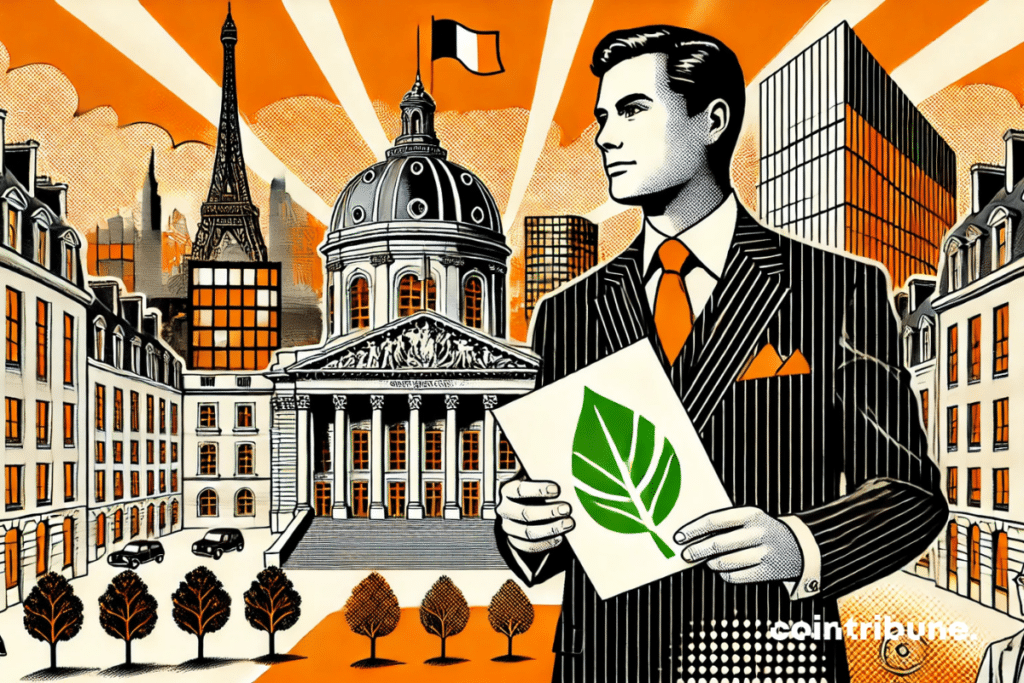French Senate's 2025 Budget : Real Estate And Green Taxation At The Forefront
As economic and climatic challenges redefine political priorities, the French Senate is leaving its mark on the state’s budget for 2025. Between measures to revive a sluggish real estate market and tax adjustments in favor of the environment, these decisions crystallize political and economic tensions.

New measures to revive real estate in France
The examination of the 2025 budget saw the Senate introduce significant amendments aimed at countering the inertia of the real estate market. A key measure now allows individuals to transfer up to 100,000 euros without taxation, provided that these funds are used for the acquisition, renovation, or construction of a property. Jean-François Husson, the general rapporteur of the budget, clarified that this initiative was designed to unblock a real estate market “in a state of blockage.” This provision, limited to the years 2025 and 2026, has nonetheless triggered reluctance within the government, which would have preferred a restriction on new housing to contain costs for public finances.
Senators have also generalized the zero-interest loan (PTZ) for old and new homes, where the executive wanted to limit this advantage to new constructions. This extension aims to broaden access to housing and stimulate investment in a property market that is often outdated. Thus, this disagreement between the Senate and the government reflects diverging views on budgetary priorities and the balance to be found between economic recovery and control of public spending.
Towards a more ambitious environmental taxation
In parallel, the fiscal adjustments adopted for the environment reveal an ambition to reduce ecological impacts in order to promote certain agricultural practices. Among the new measures, a tax of 5 cents on each unit of non-recyclable product, from widely used plastics to sanitary textiles, has been approved. This tax is expected to generate 500 million euros and is in addition to the increase in VAT on bottled water, previously adopted. The goal is clear: to encourage a drastic reduction in the consumption of non-durable products.
Agricultural operators will benefit from a tax credit of 4,500 euros for hedge maintenance, a gesture welcomed by agricultural unions for its positive ecological outcomes. However, in overseas territories, senators have temporarily suspended certain environmental taxes to encourage investments in more modern waste management infrastructures. In Corsica, a reduction in taxes on polluting activities has also been decided, fueling criticism about a certain loosening of fiscal discipline. These revisions reflect a desire to balance ecological transition and immediate economic concerns. Nevertheless, criticism is pouring in, as some denounce a “fiscal madness” likely to further burden households and businesses.
The Senate’s decisions reflect a complex arbitration between economic recovery, environmental protection, and budgetary constraints. While the adopted measures promise to stimulate certain sectors, they also raise questions about their long-term financial viability. As the debate continues, these changes pave the way for a broader reflection on the role of taxation in ecological transition and social justice.
Maximize your Cointribune experience with our "Read to Earn" program! For every article you read, earn points and access exclusive rewards. Sign up now and start earning benefits.
Diplômé de Sciences Po Toulouse et titulaire d'une certification consultant blockchain délivrée par Alyra, j'ai rejoint l'aventure Cointribune en 2019. Convaincu du potentiel de la blockchain pour transformer de nombreux secteurs de l'économie, j'ai pris l'engagement de sensibiliser et d'informer le grand public sur cet écosystème en constante évolution. Mon objectif est de permettre à chacun de mieux comprendre la blockchain et de saisir les opportunités qu'elle offre. Je m'efforce chaque jour de fournir une analyse objective de l'actualité, de décrypter les tendances du marché, de relayer les dernières innovations technologiques et de mettre en perspective les enjeux économiques et sociétaux de cette révolution en marche.
The views, thoughts, and opinions expressed in this article belong solely to the author, and should not be taken as investment advice. Do your own research before taking any investment decisions.